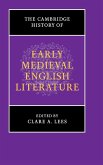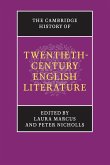Literature in English is hardly ever entirely in English. Contact with other languages takes place, for example, whenever foreign languages are introduced, or if a native style is self-consciously developed, or when aspects of English are remade in the image of another language. Since the Renaissance, Latin and Greek have been an important presence in British poetry and prose. This is partly because of the importance of the ideals and ideologies founded and elaborated on Roman and
Greek models. Latin quotations and latinate English have always been ways to represent, scrutinize, or satirize the influential values associated with Rome. The importance of Latin and Greek is also due to the fact that they have helped to form and define a variety of British social groups. Lawyers,
Catholics, and British gentlement invested in Latin as one source of their distinction from non-professionals, from Protestants, and from the unleisured. British attitudes toward Greek and Latin have been highly charged because the animus that existed between groups has also been directed toward these languages themselves. English Literature and Ancient Languages is a study of literary uses of language contact, of English literature in conjunction with Latin and Greek. While the book's
emphasis is literary, that is formal and verbal, its goal is to discover how social interests and cultural ideas are, and are not, mediated through language.
Hinweis: Dieser Artikel kann nur an eine deutsche Lieferadresse ausgeliefert werden.
Greek models. Latin quotations and latinate English have always been ways to represent, scrutinize, or satirize the influential values associated with Rome. The importance of Latin and Greek is also due to the fact that they have helped to form and define a variety of British social groups. Lawyers,
Catholics, and British gentlement invested in Latin as one source of their distinction from non-professionals, from Protestants, and from the unleisured. British attitudes toward Greek and Latin have been highly charged because the animus that existed between groups has also been directed toward these languages themselves. English Literature and Ancient Languages is a study of literary uses of language contact, of English literature in conjunction with Latin and Greek. While the book's
emphasis is literary, that is formal and verbal, its goal is to discover how social interests and cultural ideas are, and are not, mediated through language.
Hinweis: Dieser Artikel kann nur an eine deutsche Lieferadresse ausgeliefert werden.
Review from previous edition In general, the book's structure is remarkable and admirable. A succinct book, it moves freely and convincingly at all times between concrete instances and first principles. Likewise it hinges on the validations which only philology can give without losing sight of what philology is for, so that a host of new readings of important texts keeps the reader on tiptoe. Many poems and passages will be defamiliarized and energized for the reader whether monoglot or polyglot. The final chapter is enthralling, not despite but because of its distinct relationship to the linguistic and philological: its nimble transitions from language to language and poet to poet have the alacrity and rightness of Pindar at his best, which means that the book's structure is in harmony with its theme. The excitement increases to the finish line, and the open ending is very well judged. John Hale, Translation and Literature








